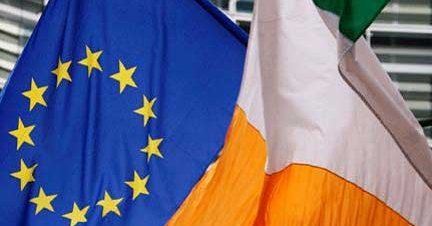Leader of the PES, Martin Schulz, hailed the Treaty as a “victory for pro-Europeans”. He stated,”After six years, we have finally sorted out the institutional and structural problems of the EU. Now we need to get on with the real business of Europe.”
Chairman of the EPP-ED, Joseph Daul, said, “Once this Treaty has been adopted, our political leaders will have to make bolder and more decisive moves to take whatever measures are needed at national level and at European level.”
So, after all the praise the Treaty of Lisbon or as it is also known, the Reform Treaty, has received, why did the Irish vote ‘No’ to the Treaty in June 2008? The EU turned Ireland from a country in economical decline to one of the most prosperous European countries; the Irish clearly felt that their influence in the EU would be diminished. One can also say that part of the ‘No’ vote relates to a lack of comfort with the very high levels of immigration from the new members states over the last five years. While the immigration flows were broadly welcomed during the boom years, the current slowdown in the global economy means that there is far greater competition in the labour market, which may have prompted an anti-Europe vote in some quarters. Reductions of nationalistic and ethical freedom, such as the forsaking of military neutrality and the stance against abortion also affected the Irish vote.
A defining problem which reflected the Irish vote, was a poll taken one month before the referendum. It found that 35% favoured Lisbon, 18% were opposed and 47% not knowing enough to decide. This highlighted the problem that people clearly did not know what they were voting for. Would anyone sign a contract that would affect them and generations to come, when it was not explained to them? A document should have been drafted which was explainable to the Irish people. Once decision time arrived, ‘No’ was the only choice many Irish had.
The powers that be are trying their utmost to get this treaty ratified in time to be put in power by the beginning of the New Year. The EU under the Czech Presidency guaranteed the safeguarding of Irish military neutrality, its right to set corporate tax rates, and its stance against abortion. Voters seemed upset that Ireland might lose its commissioner, a competence now altered to ensure each member state retains its commissioner. Michael Martin, the foreign minister, thinks the concession that Ireland will keep its commissioner, to be ratified by an EU summit in June, robs the ‘No’ camp of a key argument.
Ireland has been one of the worst hit countries of the global economic downturn. This may well make people flee from the ‘No’ side to the ‘Yes’ side. This is due to the belief of the Irish that it was indeed the EU who aided their economic boom in recent years, a notion aided by the fact that Iceland have recently conceded that their economy would have been far better off in the greener pastures of the EU.
A big backer of the ‘No’ campaign, Declan Ganley, founder of Libertas, is stepping down from the second referendum campaign after a big defeat in the June European Elections. This is a major relief to Prime Minister Cowen and the ‘Yes’ backers after Ganley’s, sometimes untruthful, spin in the media played a crucial role in last year’s referendum. With Ganley’s absence, there is unlikely to be the same level of campaigning against Lisbon and the under fire Cowen can be understandably confident of winning the day and taking off a huge weight off his shoulders.
Brian Cowen’s administration may not be very popular, the Lisbon Treaty might not have changed since June 2008, but nevertheless the signs are pointing towards a win for the ‘Yes’ campaign. This may be due to the economic downturn which has hit Ireland so hard. Forecasters are predicting a 10% decrease in GDP, while the unemployment rates are expected to rise as high as 12%. Polls are now showing a two to one majority of voters favouring ratification of Lisbon, showing that the Irish do not want their beloved country to turn into another Iceland. For Cowan, such a victory would be vital to secure some time for his government which is falling apart, and clearly cannot afford another failure. Whatever else Cowen can take he certainly will not survive a second referendum defeat.


Follow the comments: |
|
